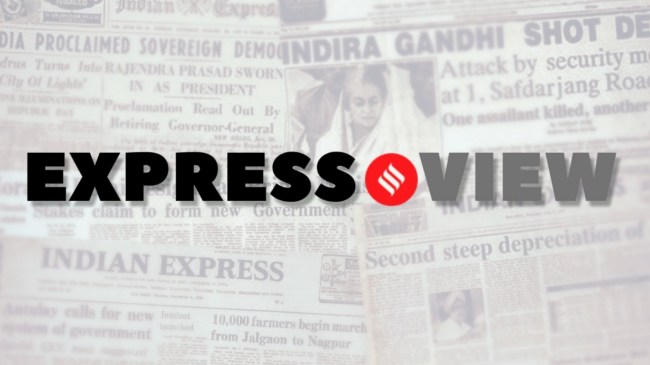Opinion J&K has an elected government. It needs to be a state
In J&K, one year after an elected government took charge, statehood is needed to bridge the glaring gaps in representation and accountability
 The Centre's evident reluctance to restore statehood has little justification. Delimitation has been completed, as has a peaceful, free and fair election.
The Centre's evident reluctance to restore statehood has little justification. Delimitation has been completed, as has a peaceful, free and fair election. On several occasions since the abrogation of Article 370 in August 2019, senior members of the central government and ruling party have spoken of the steps forward taken in the erstwhile state of Jammu and Kashmir. Broadly, the claims of a turnaround rest on three pillars — development projects and economic growth, improved security and integration. Yet, an anomaly has persisted. The only state to be bifurcated into Union Territories was administered by an appointee of the Centre. Last year, the people of J&K turned out in large numbers to vote in the assembly elections, and yet the elected government continues to be hemmed in. The Omar Abdullah government has conspicuously avoided confrontation with the Centre, by and large setting aside its political differences with the BJP to work within the constraints. But now, a year after the elections, it is time that the promise of returning full statehood to J&K — made in Parliament and before the Supreme Court — is fulfilled.
As Chief Minister Abdullah pointed out in an interview with this newspaper, “a Union Territory with an Assembly is by far the most inefficient model of governance”. It is a principle of democracy that a mandate must be accompanied by the power to implement it. The Abdullah ministry has attempted to keep some of its poll pledges. It recently announced the return of the Darbar Move — the government moves from Srinagar in summer to Jammu in winter — a 150-year-old tradition scrapped by the Lieutenant Governor in 2021. The Move, since its inception, was a signal to various parts of the erstwhile state — Jammu, Kashmir and Ladakh — that the government is willing to go to the people and that it seeks to represent all interests. Beyond such gestures, however, the Abdullah government has been cramped by, and in effect, dependent on, the L-G’s approval and whim. While the state government’s cordial relationship with the Centre has had some benefits — like receiving Rs 5,000 crore over the budgetary allocation — it has come at a political cost. Both from within the ruling alliance in J&K and the Opposition, the government faces criticism for not demanding the return of special status and for allegedly failing to stand up to the L-G. In this fraught context, even political gestures such as the CM’s visit to a cemetery on Martyr’s Day have become political flashpoints.
The Centre’s evident reluctance to restore statehood has little justification. Delimitation has been completed, as has a peaceful, free and fair election. Invoking national security in general, and the Pahalgam terror attack in particular, to delay statehood does a grave disservice to the people of J&K. In the aftermath of the horrific killing of tourists by Pakistan-backed terrorists, CM Abdullah, the state assembly and the people of the Valley stood with the rest of the country, in shared grief. The powers-that-be at the Centre must recognise that representative and accountable government is not a privilege, conditionally conferred. It is at the core of the constitutional and federal architecture. The recent protests in Ladakh offer a sobering lesson on the perils of prolonging a democratic deficit. In J&K, the representation gap must be bridged without delay.



